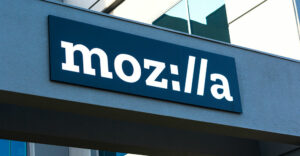
For the first time ever, Wikipedia last month cracked into comScore’s top 10 hottest properties on the Web, largely due to the exposure the online encyclopedia receives from search engines such as Google.
During January, comScore reported that Wikipedia and its affiliated sites garnered 42.9 million unique visitors, which earned it a ninth place ranking on the Reston, Va.,-based Internet traffic watcher’s list of top 50 properties for the month.
Achieving a top 10 ranking is no mean feat, according to comScore analyst Michael Rubin. “The top 10 sites don’t change all that often,” he told LinuxInsider. “Before Wikipedia jumping in, there was Fox Interactive Media in August, after they acquired MySpace. They jumped pretty high up after that.”
Thank You, Google
A large part of Wikipedia’s success at attracting online visitors can be attributed to search engines in general and Google in particular, contends LeeAnn Prescott, research director for Hitwise in San Francisco. “Search engines are the main source of traffic to Wikipedia,” she told LinuxInsider. “They’re responsible for 70 percent of its visits.”
She added that 50 percent of all visits to Wikipedia came from Google. “The amount of traffic leaving Google and going to Wikipedia has increased by 166 percent from last February to this February,” she observed.
Why is so much traffic diverted from search engines to Wikipedia? “For a lot of search engine results, Wikipedia entries are often in the top five results,” Prescott noted.
She explained that the design of Wikipedia optimizes it for Web searches. “With all the links leaving Wikipedia and links within Wikipedia linking to other entries, Wikipedia entries are given high rankings in natural search results,” she said.
No Big Surprise
For some Internet watchers, Wikipedia’s debut among comScore’s elite top 10 was no bolt from the blue. “I wasn’t surprised at all at the ranking,” Chris Sherman, executive editor of SearchEngineLand.com, told LinuxInsider.
“For the last year or so,” he noted, “it’s been very common to see Wikipedia results in the top 10, especially in Google. Over time, that builds momentum; it becomes something people become aware of.”
Asked if Google was unfairly hyping links to Wikipedia, Sherman responded: “Google is not going to go and say it should or should not include Wikipedia in its search results. That’s not how it approaches it.”
“It’s looking at the behavior of people on the Web, in particular, people linking to Wikipedia and factoring that into play,” he continued. “It’s seeing lots of links pointing to Wikipedia articles, therefore the Web community thinks it’s a good resource.”
Causal Relationship
From the point of view of Wikipedia co-founder Jimmy Wales, Google’s sweetheart relationship with the online encyclopedia is a logical one.
“I think the causal connection is quality,” he told LinuxInsider. “Google’s algorithm is designed to find good quality, relevant information for people when they search on a search term. That’s what we strive to provide.”
“A lot of what goes on in what’s called the search engine optimization community is basically nonsense,” he added. “If you build a good Web site, people will come and Google will find you and good stuff will happen.”
Sherman noted that a new feature added by Google to its repertoire may also boost trips to Wikipedia. “If you have a Google account of any kind, what Google is doing now is personalizing your search results,” he explained. “If you’re clicking through a lot to Wikipedia results, Google is going to start noticing that and start boosting Wikipedia results to you.”
Negative Publicity
Aside from search engines, Sherman noted, Wikipedia may also be benefiting from the built-in search form incorporated in the latest versions of the Firefox Web browser. “Wikipedia is one of the default search sources in Firefox,” he explained. “That might not be a major source of new traffic for Wikipedia, but it can’t be hurting it either.”
The site’s traffic patterns do not appear to be hurt by negative publicity. “A lot of the negative publicity is the press going ‘aha’ about stuff everyone already knew about,” Wales said.
“Wikipedia sometimes has errors, and you have to be careful with it,” he continued. “I think most people get that, so it doesn’t affect their judgment about the value of the site.”




















































